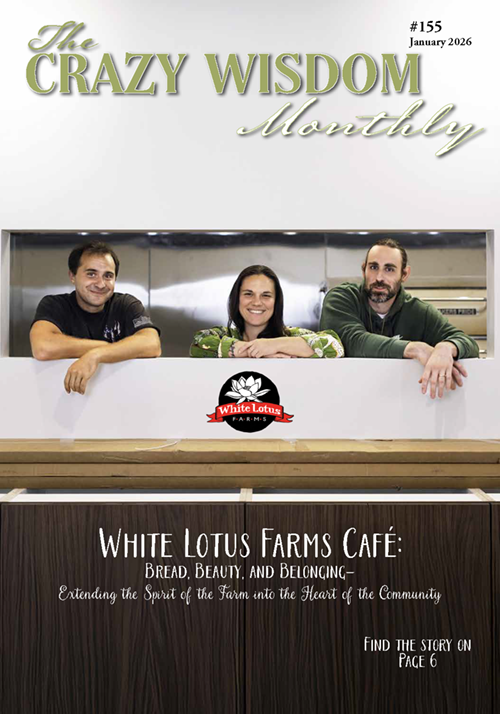By Rachel Pastiva
Colby Halloran was born and raised in Ann Arbor. She studied acting at Wayne State University’s Hilberry Gateway Theater and moved to New York City where she became an actress and playwright. Returning to Ann Arbor in 2006, she wrote about her life experiences. Her first book, The Northeast Corner, chronicles a chapter of her youth growing up in Ann Arbor from the late 1950s to the late 1960s. It was published in October 2024 by the Ann Arbor District Library’s Fifth Avenue Press.
Colby will be appearing in conversation with Rachel Pastiva in the Crazy Wisdom Celestial Lounge on May 15th. Join us for a thought-provoking discussion on life paths, memory, and writing it all down.
Rachel Pastiva: You have spent most of your career as a playwright and actress, but I see that in addition to your recently published book, The Northeast Corner, you are working on three other book projects. What inspired you to change direction and start writing books instead of plays?
Colby Halloran: Theatre came before writing. First, I was a costume designer, then an actress and a prose writer, and finally a playwright. I love writing plays. Plays are fun. Prose is necessary, but it’s not fun. Is playwriting necessary? I think so, but fewer and fewer plays are getting produced.
You ask what inspired me to change direction? I have a date for that. On June 10, 1981—44 yrs ago—my theatre partner was run over in front of our off-off-Broadway theatre in lower Manhattan. Charles and I jointly ran a 50-seat loft theatre in Tribeca called The Theatre Exchange. The story of Charles and our theatre and how I left a professional acting career to work in his theatre is told in Bicycle Boy—the autofiction novel I’ve just finished. Because Charles’ death was so gruesome, I needed to give up something. I needed to handle the profound change this made in my life. So, I gave up acting. I threw my $450 Paul Huntley wig in the trash can ten feet from where his head was crushed and that was that.
How/why did I start writing? Working with Charles for two years, I observed him write. I observed his struggle to say what he wanted to say. He was adapting a Stephen Crane story for our theatre. I had to write press releases and acknowledgements after he died. That was the beginning. My husband at that time encouraged me to take a writing class at The New School. I studied with Richard Brickner. I won’t tell that story now. Another life changer. Richard was encouraging. I started writing short stories. Three were published. Many more have never been published. I don’t think I’m a short story writer.
I began writing the play Bird of Passage around 2010. It consumed me for about eight years. I did a lot of research, all the while working on various short stories. The premiere in Maine was not until 2019. How I decided to write it is a great story—for another day.
Rachel Pastiva: What differences and similarities have you found in storytelling using these two mediums?
Colby Halloran: In playwriting, the circumstances and background have to emerge naturally through dialogue. The sets and costumes can only tell so much. Some playwrights give their characters long monologues with back stories. Some don’t. I never studied playwriting. The characters should each have unique voices, rhythms, and vocabularies.
The playwright has to hear all these voices and render them. The action all springs from the circumstances the characters get themselves into. In storytelling, the narrator steers what the reader is supposed to be focusing on. But I honestly can’t talk very well about writing prose. Richard would tell his students, “That paragraph about the dog in the driveway? Press on it.” When I start reading a book or a story, I ask myself at the bottom of page one, “Can I trust this writer with my life?” Because books can change us. If I don’t feel I’m in trustworthy hands, I don’t keep reading. Establishing your moral compass and what you care about as a writer at the very beginning is hard but hugely important.
Rachel Pastiva: Though told in the form of fiction, The Northeast Corner is based on your personal life and is a snapshot of a tragic and very transformative time in your life, the late 1950s through the late 1960s, growing up in Ann Arbor. Why did you feel this particular story needed to be told?
Colby Halloran: It didn’t have to be told. My father died when I was 18 and mother when I was 28. A friend who knew me back then said, “You always talk about your high school years as if they were gloriously happy. They weren’t, Colby. Admit it.” That haunted me. As it turns out, my sister’s children have all said, “I never knew my grandparents. Now I do.” But I didn’t write it for them. Their response was a bonus. I’m proud of my family. And I’m glad that I dared to study my parents with their own gifts and flaws. My father always said, “Tell it straight.” That gave me courage to tell it as straight as I could.
Rachel Pastiva: I was touched by the honest and loving way you portrayed your parents. Even though they were flawed and sometimes made painful choices, you never passed judgement on them and spoke very matter-of-factly about who they were. Is that perspective of them how you felt at the time, or do you think it’s one you have acquired through hindsight?
Colby Halloran: I was telling someone the other day that I cannot recall ever shouting at my parents. Not once. And I can’t remember being really angry with them. If anything, I was in perpetual awe. It sounds unlikely, right? Maybe someday I’ll recall some God awful fight we had, but I was raised to respect my elders which wasn’t hard. I was surrounded by impressive people. What I don’t include in The Northeast Corner is my early years (ages 4-8) when I bewildered my parents with my refusal to eat and my refusal to go anywhere. They took me to a child psychiatrist who said, “Something frightened her, but she’ll be okay.” I decided not to deal with that—it was so far back. But their patience and love for me during those bewildering years was something I palpably felt and was grateful for. It’s become more popular now to expose and reveal the horrors of one’s childhood. I’m not being Pollyanna about my parents. Ask my cousins. I just lucked out. They were remarkable people—not perfect– but still remarkable and they set a very high bar. My father taught me all an artist has to give is themselves. Their truest self. How they see and what they can do with their hands and brains and what they care about. My mother taught me to cherish people, not things.
Rachel Pastiva: Your ancestral home is an important character in the first part of your book, but due to unforeseen circumstances, you are forced to leave it. How do you think we are shaped by the places where we live?
Colby Halloran: Not everyone is attached to where they live. I have friends who can’t recall when and where they lived as a child. I have lived in about 30 different places in 76 years. I have trouble listing them in order, but I remember them vividly, each and every one. Some people just don’t notice. My cold cottage in Ireland was memorable because there was no heat or electricity, but my memory of it is how cozy I was in bed under a pile of blankets with five hot water bottles, reading by oil lamp, cows grazing outside. I have been extremely lucky never to have been homeless or miserable. Which is not to say I haven’t slept on a lot of couches of a lot of friends.
Rachel Pastiva: I was moved by so many aspects of your book. But one of the real treats was getting to see what Ann Arbor was like in the 1950s and 1960s. I imagine that the Ann Arbor of today is unrecognizable from that of your youth. Are there any aspects of that city that you still recognize in Ann Arbor today?
Colby Halloran: My family church, St. Andrew’s Episcopal on N. Division, hasn’t changed that much. It’s not as sedate as it once was, but the values are the same and their mission to help others has only deepened. The Nickels Arcade, Forest Hills Cemetery, and the Arboretum. The old train station is a fabulous restaurant. They don’t have gum ball machines anymore, but they serve delicious food and the Wolverine [an Amtrak train that runs through Ann Arbor] still goes by. My mother used to call Ann Arbor “this once-village of ours.” It wasn’t a village when I was growing up, but yes, it has changed. This isn’t the place to talk about the sprawl. I’m glad to be living in a university town. My husband needs libraries!
Learn more about Colby Halloran and her books on her website at colbyhalloran.com.
Related Articles:







































































































































































































This ongoing column features upcoming events within Ann Arbor/Washtenaw County and surrounding areas’ Body/Mind/Spirit communities, new (during the past year or two) practitioners and holistic businesses, new books written by local/regional authors, new classes, as well as new offerings by established practitioners and holistic businesses.